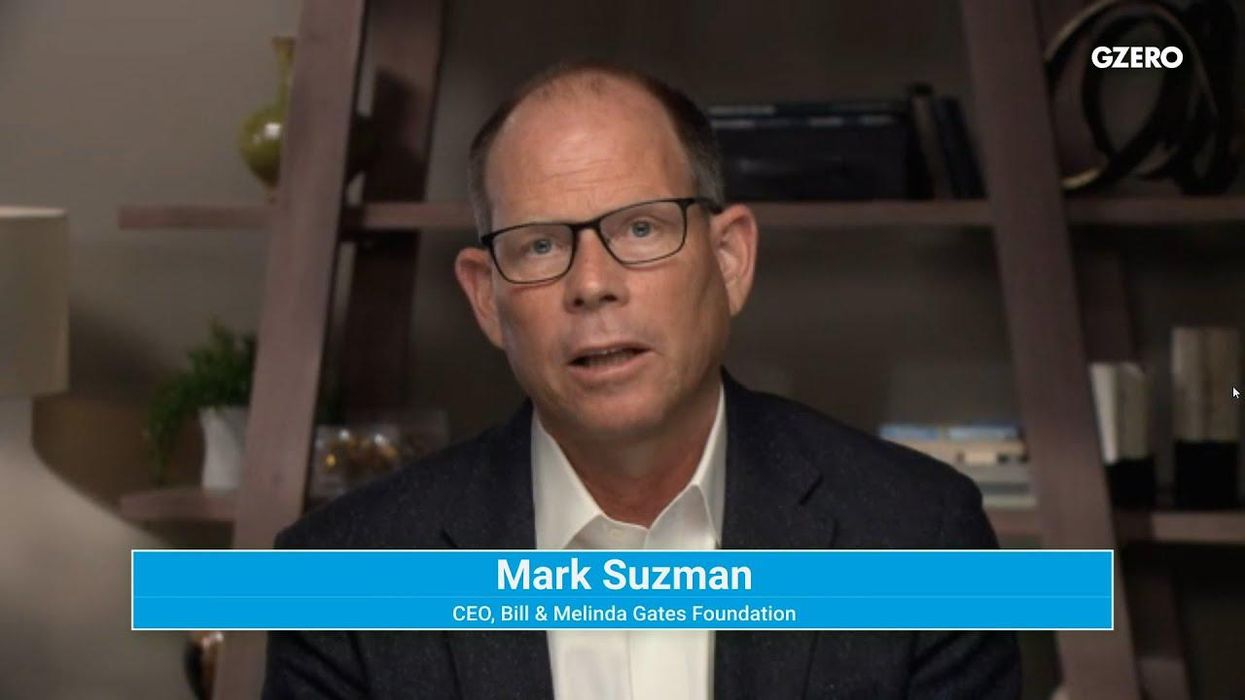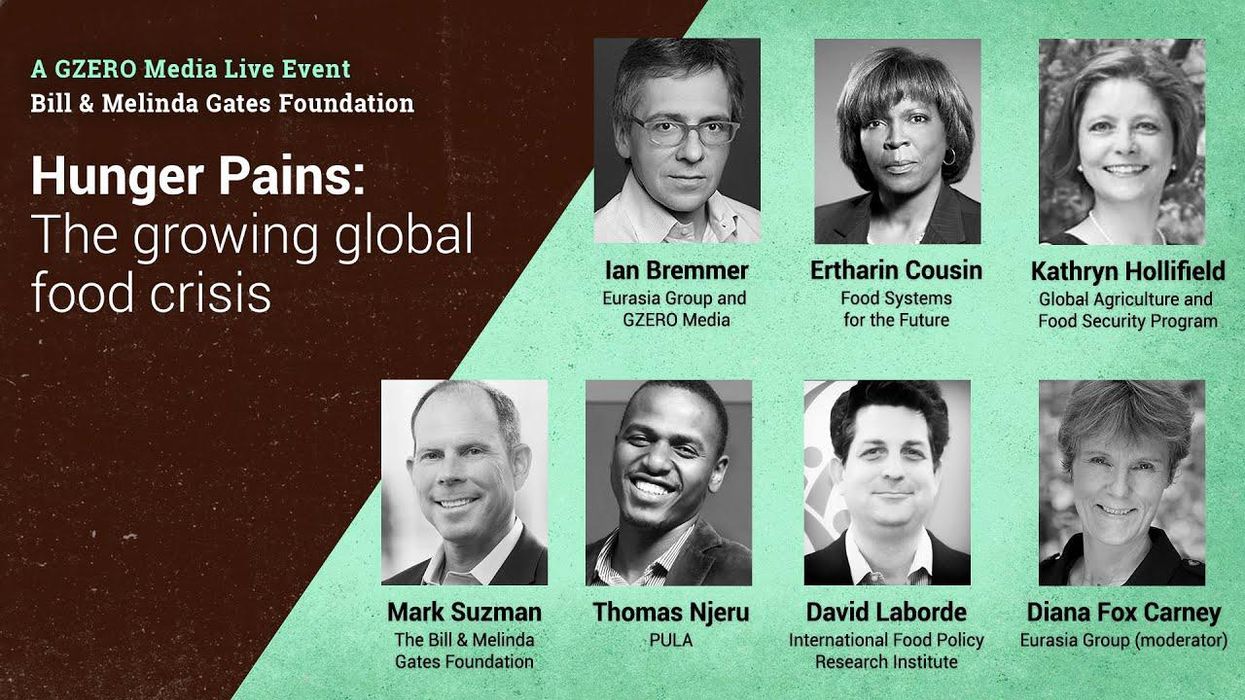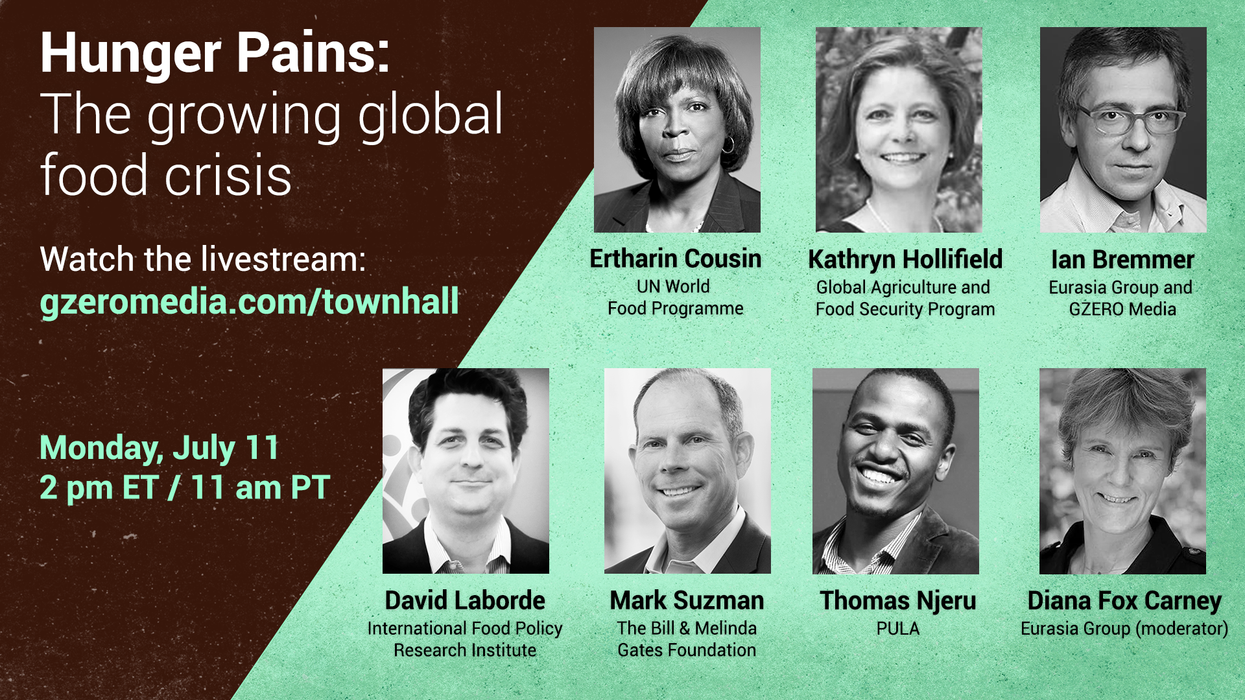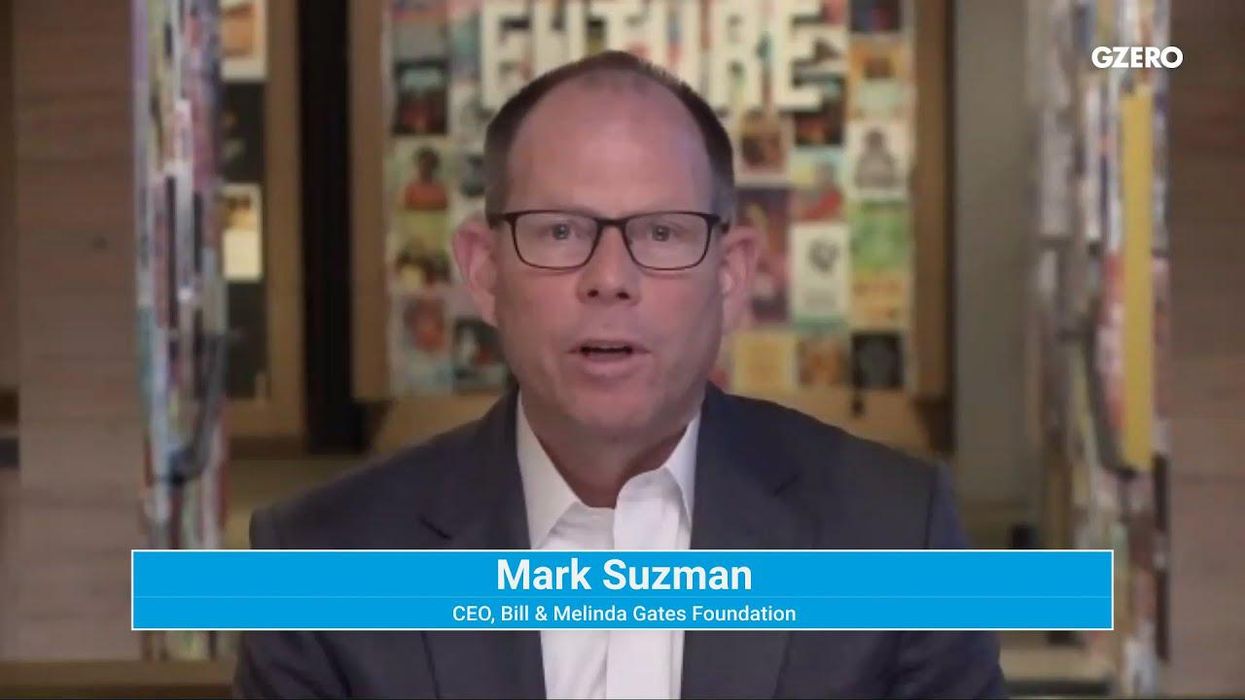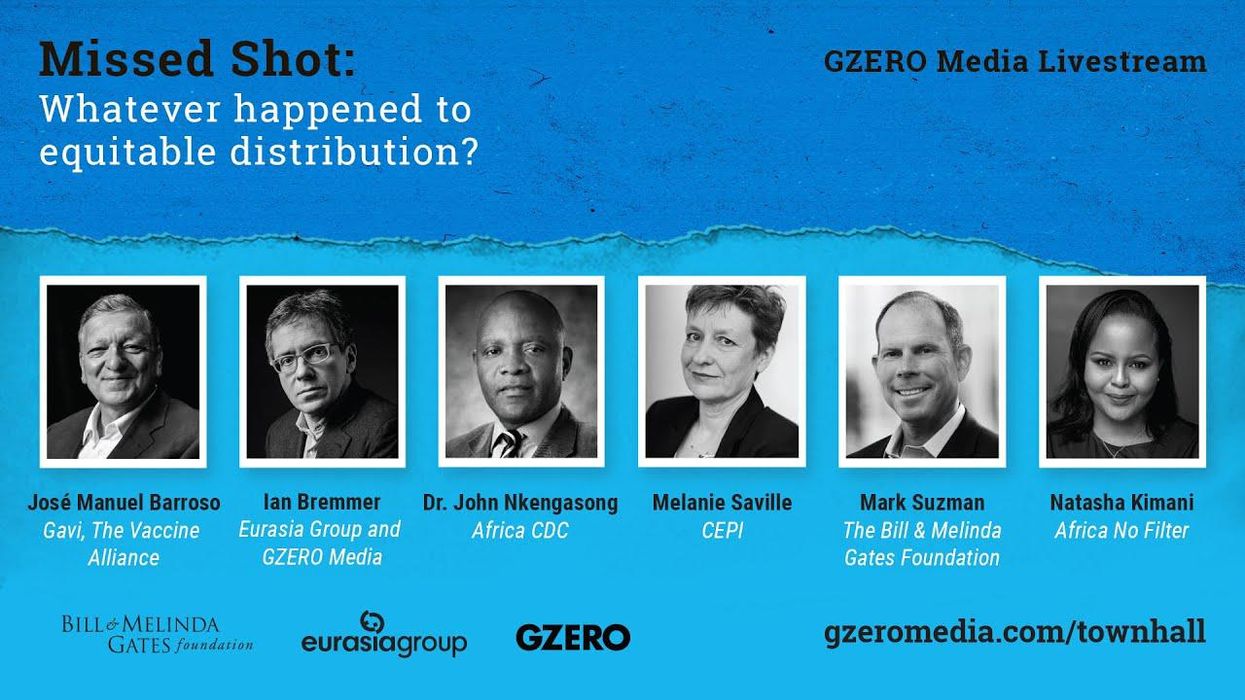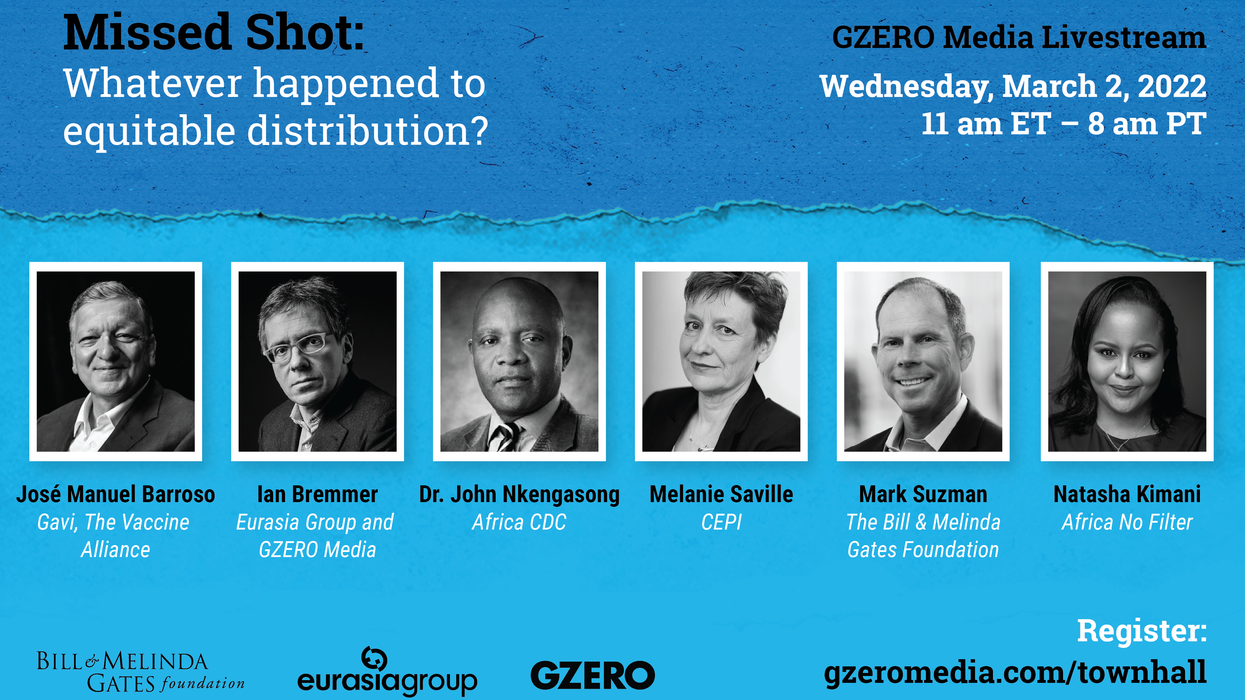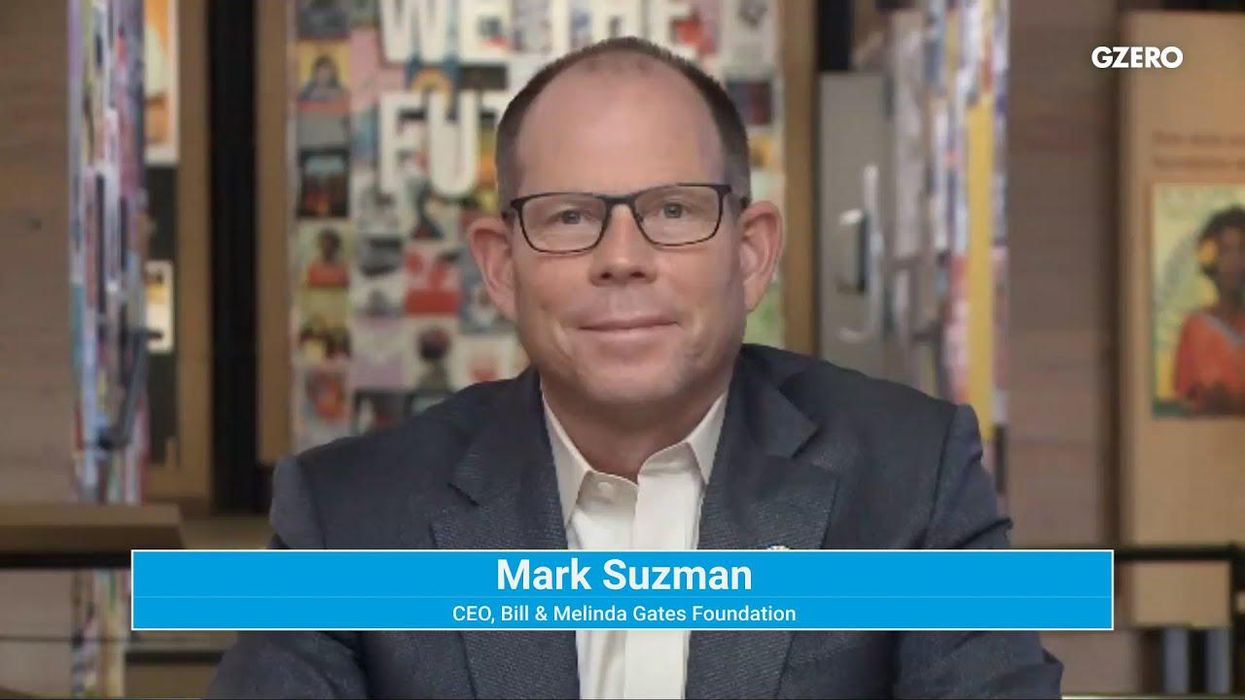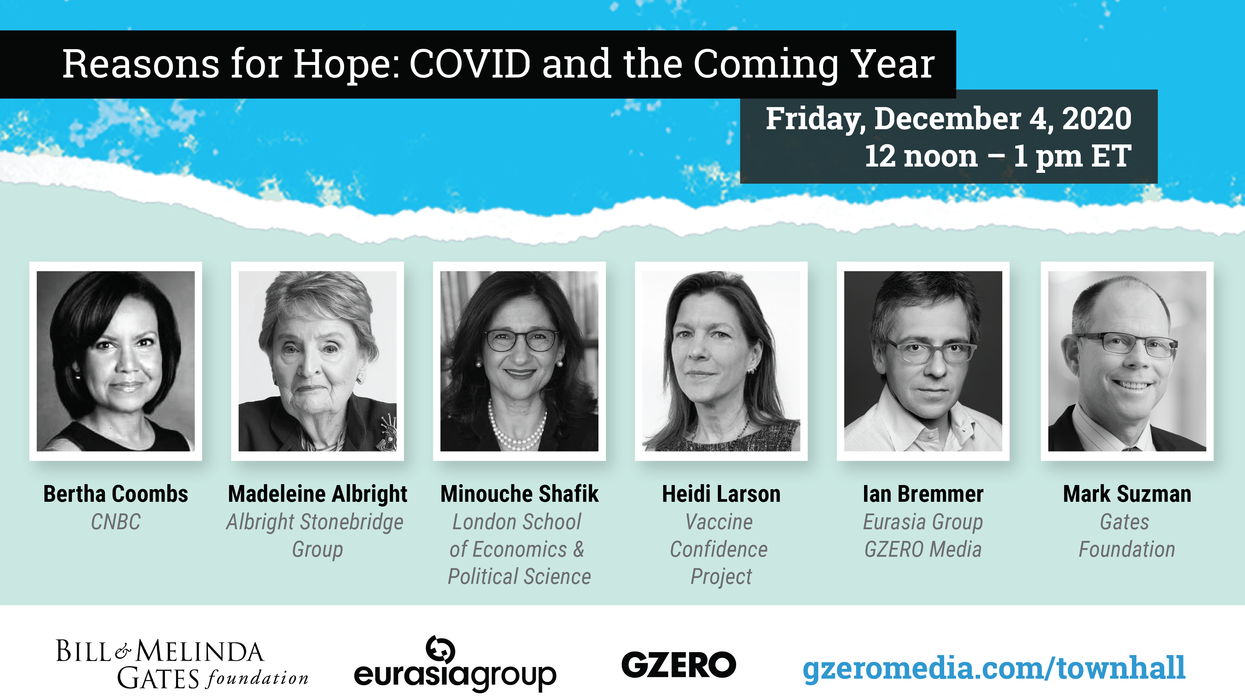Video
Innovation: cause for optimism amid the global food crisis
How long will food prices keep rising? Will food itself become scarce? There's a lot of doom and gloom these days about the global food crisis, made even worse by Russia's war in Ukraine. But there are some reasons to be hopeful, Bill & Melinda Gates Foundation CEO Mark Suzman said during a livestream conversation hosted by GZERO Media in partnership with the organization he leads.
Jul 14, 2022
